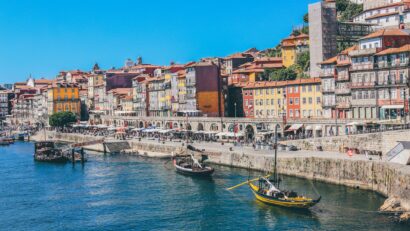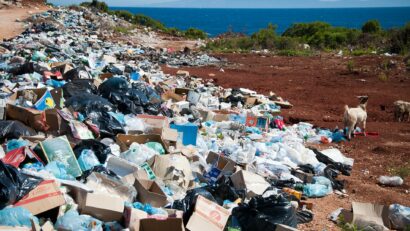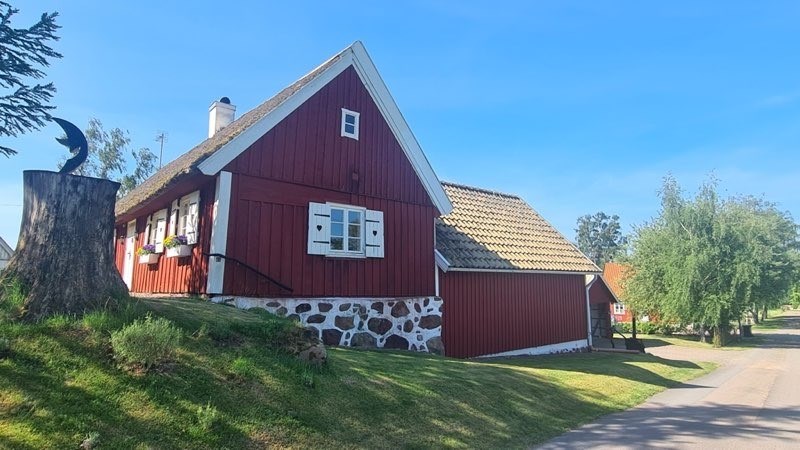
Unbreakable: Duralex Glass Heritage Saved by Its Workforce
They complement every French bistro like a petit café after a meal: Glasses from Duralex have cult status in France and are very popular internationally. Nevertheless, after several difficult years, the French glass manufacturer was on the verge of collapse. High energy prices and declining sales pushed the company to the brink of insolvency. After multiple takeovers and bankruptcy proceedings, the workforce took charge of Duralex by founding a cooperative, preserving all jobs—and securing the company’s future.
Hailed by the New York Times as one of the best drinking glasses in the world, Duralex products are enjoying great popularity worldwide. Indiana Jones used them to drink his whiskey and James Bond managed to catch a scorpion with a Duralex glass after emptying it.
But the story of these iconic tumblers with the round belly begins much earlier in the heart of France. In 1945, Duralex was founded in La Chapelle-Saint-Mesmin, a suburb of Orléans. Since then, glasses have been manufactured here using a special, patented process and sold all over the world.
Iconic Glasses Made in France
Few drinking glasses can claim to be as sturdy and iconic as this one. In France, there is hardly any person who has not drunk out of a Duralex glass at some point. Even in school, children learn about the properties of these glasses, which can be dropped and yet will not break. For many, Duralex glasses are not only functional, but also part of their collective memory. The number in the glass bottom, an indication of the production mold, became a game for generations of schoolchildren: whoever had the highest number had to fetch the water for the others.
Long-Standing Company Under Pressure
However, the resilience of its glasses cannot be deduced from the economic resilience of the company. Duralex is not the only long-standing company that has come under economic pressure in recent years. Increasing competition from low-wage countries and high energy costs made domestic manufacturing more and more difficult. In particular, the energy-intensive process of glass tempering, in which the glass is first heated to a high temperature and then cooled rapidly, became increasingly expensive. The company was only incurring losses.
Ultimately, the pandemic dealt Duralex the final blow. Insolvency seemed inevitable. After several changes of direction and insolvency proceedings, the company even suspended production for a short time.
Two companies submitted takeover offers. Both included plans for massive job cuts. The case was taken to court in Orléans.
Duralex Employees Set Up a Cooperative and Secure All Jobs
After tough negotiations, the court in Orleans ruled in July 2024 to accept the employees’ plan to found a cooperative. The workforce saved all jobs by uniting more than half of its members to take control over the future of the iconic glasses and invest in their own company. In a statement, the newly founded cooperative said:
‘We are taking our destiny into our own hands and are determined to advance our company, an icon of French industry, in an ambitious transformation project.’
There was support from politicians and authorities. The cooperative received around €10 million to purchase the production site and preserve jobs in the factory and at suppliers.
But more power brings greater responsibility. The employees are now involved in all decisions in a board of directors. They elected the former plant manager, François Marciano, as director. He is supposed to help them get the company back on track. The first step is to convince the rest of the workforce and then the whole world of the new business model.
Raising a Glass to Duralex’s Cooperative Future
The aim is to reduce the high production costs by investing in renewable energies and to make Duralex profitable again by developing new products. To do this, the company needs to modernise its machinery and structures. It wants to build up rather than down. Duralex plans to set up more departments to make sales and marketing more professional.
The renewed attention Duralex is receiving has already boosted demand for its iconic glasses. The cooperative aims to restore profitability within the next five years.
This work is licensed under the Creative Common License. It can be republished for free, either translated or in the original language. In both cases, please cite Kontrast / Justus Hartmann as the original source/author and set a link to this article on TheBetter.news. https://thebetter.news/duralex-cooperative/
The rights to the content remain with the original publisher. Läs mer…







